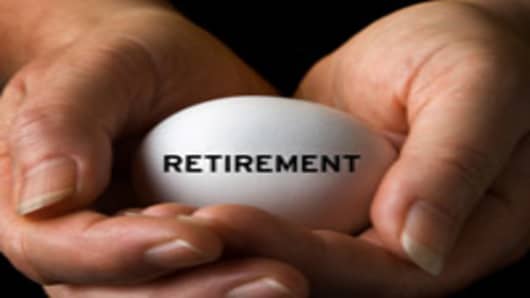The people born between 1946 and 1964 have been lumped together as the Baby Boom generation their entire lives, but their values and outlooks differ greatly along that 18-year spectrum.
The oldest boomers are 64 this year, on the cusp of retirement. At the other end, those born in 1964 are 46 this year, typically at the peak of their earning years.
They’re just beginning to feel mortal and may have one eye cocked toward eventual retirement, but after all, it’s 20 years away. The so-called Leading-Edge boomers—those born between 1946 and 1954—are staring it full in the face.
According to a 2007 study by the American Association of Retired People, more leading-edge Boomers view retirement not as the completion of a career, but an opportunity to change lifestyles, since 70 percent expect to continue working into their retirement years.
The AARP study was done before the recession that caused crippling asset losses for most individual investors, so the percentage is likely higher now. But most Leading-Edge Boomers have careers that are slowing down and they are thinking more about the next stage in life.
“People are not retiring the way they used to,” said Mark Brown, a principal in the Denver-based financial planning firm Brown & Tedstrom. “Seventy is the new 50. People aren’t wearing out the way they used to.”
“People might change the structure of what they are doing, so as not to be so fixed to a schedule, but they plan to keep working,” said Brown, who estimates at least 50 percent of his clients are Boomers, mostly Leading Edge. “A lot of people have not accumulated enough for retirement, so continuing to work as they retire is something out of necessity rather than desire. It’s no big deal to work a couple more years.”
Aside from the Leading-Edge and Trailing-Edge categories, there are other ways to separate the vast Boomer population (78 million) by type.
Carol Morgan and Doran J. Levy wrote the book, “Segmenting the Mature Market: Identifying, Targeting and Reaching America's Diverse, Booming Senior Markets.”
Their consumer research firm, Strategic Directions Group, has done seven research studies on Boomers since 1989. Through their research, they’ve subdivided Boomers into four groups: the Financial Positives, the Upbeat Enjoyers, the Threatened Actives and the Insecure.
Financial Positives
The Financial Positives account for 29 percent of Boomers, Morgan and Levy say. They are very financially secure and don’t plan to work in retirement.
In many ways, Joan Fitting Scott is living the model she set out in a book she wrote, “Skinning the Cat: A Baby Boomer's Guide to the New Retiree Lifestyles.” She fits the Financial Positive mode to a tee. At 63, she’s already in “full retirement” mode.
Scott lives with her husband in a Forth Worth house they own.
“Our daughter lives in a little house behind our house,” she said. “We trade free rent for some home maintenance jobs.”
Before raising a family—two grown children, 25 and 27—Scott worked in federal, state and local government.
“Then I worked in the nonprofit world and later set up my own PR firm in my home,” she said.
Scott says they have enough money from savings, her husband’s railroad pension and investments to keep from working any more.
She is spending her retirement “fulfilling some long-deferred passions,” she said. “I study French and Italian, piano and painting. I travel and spend time with my husband and friends. I give back to the world by sitting on a couple of boards—World Affairs Council and for my alumni association, where I just finished a term as president."
"I'm very busy and loving it,” she said.
Upbeat Enjoyers
This demographic, which makes up 34 percent of Boomers in Morgan and Levy's research, also are successful and optimistic about the future. They’d like to spend retirement expanding their intellectual horizons, but will work if they find it convenient and interesting.
Call Vicki Payne a Leading-Edge Boomer and an Upbeat Enjoyer. At age 62, she plans to retire in 18 months, joining her husband who’s already retired at age 65.
They own a home in Charlotte, N.C., with a second home in the Carolina mountain town of Blowing Rock.
She and husband Chris opened a glass gallery in Detroit 30 years ago. They began producing how-to stained glass videos, which led to a weekly series on The Learning Channel. They moved the show to PBS and started producing and hosting the For Your Home show, now carried in more than 500 markets.
Payne also has written some books, has her own line of home décor and manages a steady stream of speaking engagements at trade shows.
“I feel financially secure but will have to continue to work part-time so all my employees keep their jobs,” Payne said. “When you are the product, you have others to think about. I also write books and continue to do that after I stop working 9-5. I don't have to work but will choose to—for fun."
How does she visualize retirement? “Traveling, being creative and involved in charity work, gardening,” she said. “I’ll still publish books and provide talent for For Your home.”
When Payne retires in two years, she plans to sell her business to her son-in-law, who will then provide her with $4,000 in monthly income. The couple has more than $2 million in real estate and no bills, she said.
“We’ll sell our larger home and buy a smaller but still upscale home,” Payne said. “I had more money in October of 2008, but I feel financially secure. I will receive some income from book royalties and product licensing. Social Security will be nice for spending money and hopefully Medicare will cover most medical expenses.“
Threatened Actives
Threatened Actives, who make up 23% of Boomers, want to work in retirement and maintain their independence. They don’t necessarily view retirement as a time for growth and the cultivation of new interests, but have a generally positive outlook on life, feel somewhat financially secure.
Ann Middleman, 62, lives in the Long Island house she owns with her retired husband, with a couple children still at home. She plans to start collecting Social Security in another three years.
After a long work career in teaching, marketing research and public relations, she was downsized eight years ago and started her own marketing research consulting firm.
“I don’t really have to retire from this job,” she said. “I can scale back when and if I want to. I may decide to scale back my hours (with Social Security), but I doubt I’ll stop completely. I may never stop completely. It depends largely on my health and whether (and when) I just get bored with work.”
Middleman says she's like to have the time to engage in different activities and learning opportunities. For example, she says, "I’d like to learn how to play the piano. I may want to do some volunteer work, take a course at a local college—or online. I’d like to have more time to travel and to go to the theater. Eventually, I will probably wind up in North Carolina, where my son lives."
She is attracted to the area's cultural and academic outlets, as well as lower housing costs, good medical facilities, and proximity to New York.
Her husband has a teacher’s pension fund she has several IRAs and some stocks. Their plan is to live on the pension and Social Security, and use the investments and retirement savings for travel.
“But who knows what will happen to the cost of living?” Middleman said. “My investment savings should be able to cover travel et al for at least 10 years, possibly 20. It depends on how much I travel and where I go. It also depends on how much I earn by continuing to work a little. If I can net $20,000 a year, that will stretch the savings by quite a bit.”
Challenges for Smallest But Most At-Risk Group
Insecure
The smallest segment, the Insecure, account for the remaining 14% of the demographic, according to Morgan and Levy. Members of this group are deeply troubled by their lack of financial resources, and they view their lives as bleak and offering little chance of improvement. Looking back on a difficult past, they see themselves facing uncertain, lonely futures.
Shirley Green of Arvada, Colo., epitomizes the Insecure segment of the Boomer sector.
"It's a very scary time of life,” said Green, 58. “If someone had told me 10 years ago I would be in the situation I am now, would have told them ‘you have been drinking your bath water.’ ”
In 2002, Green was a victim of layoffs at Qwest Communications , the Denver-based Baby Bell that went from 72,000 employees in the late 1990s to about 36,000 today. She had worked for the company for 25 years.
She took an unsuccessful run at starting up a home-based elder care business based on her role as primary caregiver for her late mother for almost 20 years. In 2004 she moved to Orlando and started working for Disney . Then came three hurricanes, a rarity in central Florida.
“I was in seventh heaven, then I lost almost everything” she said.
Green returned to the Denver area in 2005 and resides in a suburban Wheat Ridge apartment after filing for bankruptcy in October that year.
“I have been struggling to even eat, let alone pay other bills for years now,” she said.
She’s done contract work and one full-time job, but was laid off again. With no savings left, she said she has no money to retire.
“I’d like like to retire in 2013, when I am 62 but don’t think that will happen,” she said. “I honestly do not think there will be a retirement as I had hoped. I believe I will work until the end.”
More than one-third of those over the age of 46 don’t feel secure in their jobs and more than half point to the economy as having the biggest impact on their stress levels, according to a new survey by Workplace Options, a Raleigh, N.C., Web-based employee training firm.
"Baby Boomers are experiencing a challenging time in this economy," said Dean Debnam, CEO of Workplace Options. "They have spent their entire lives working toward a goal of retirement, and some are now faced with the possibility of being sandwiched between that desire to retire and the need to make up for lost income, investments and savings over the past year. "
Watch "Tom Brokaw Reports: Boomer$!", Thursday, March 4 at 9pm ET on CNBC. The program will also air Saturday, March 6 at 7pm ET; Sunday, March 7th at 9pm ET; and Monday, March 8th at 8pm ET.






